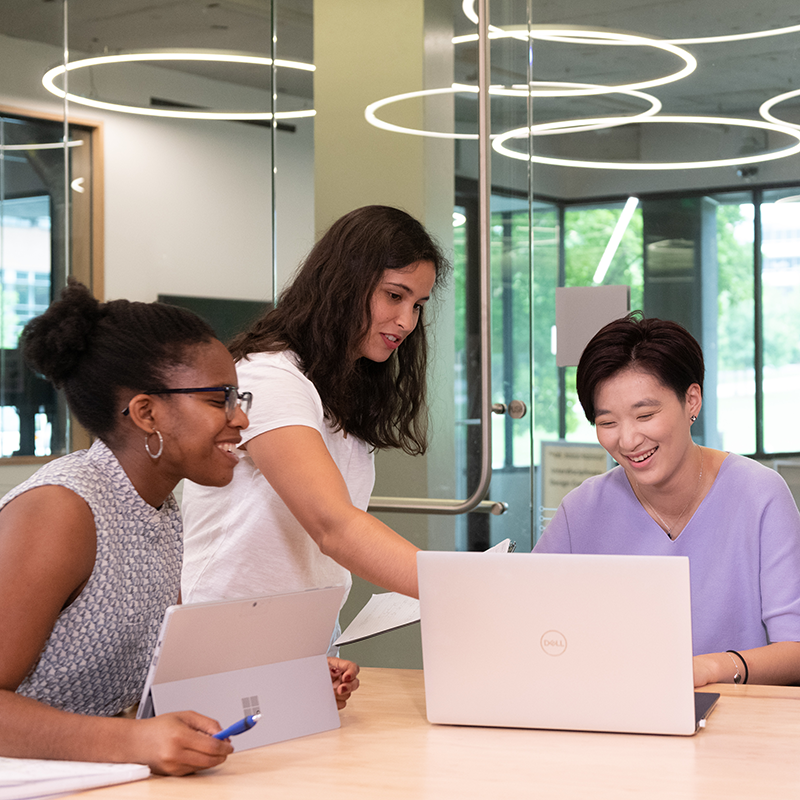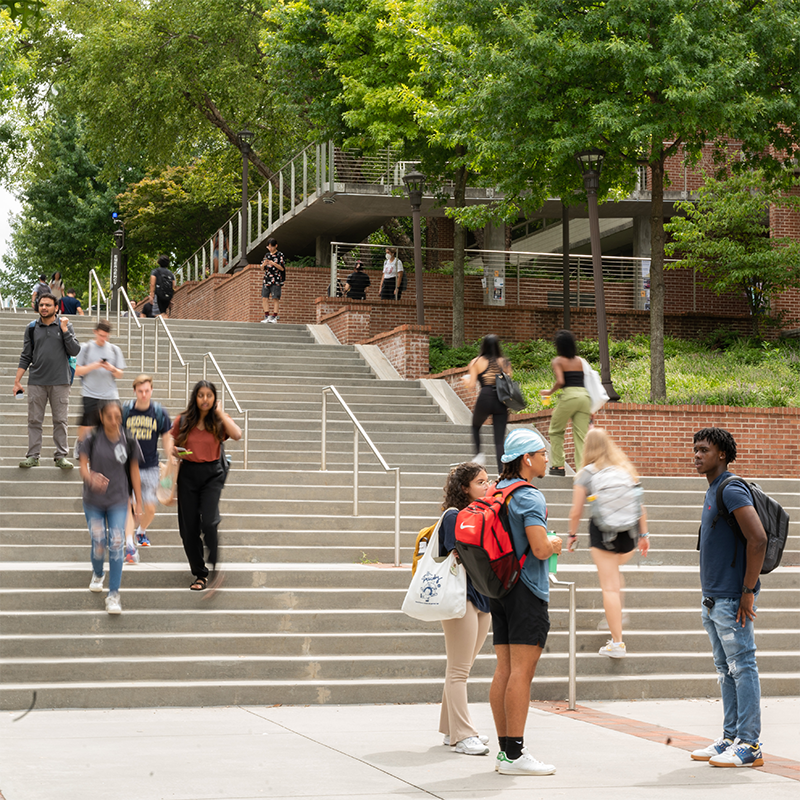Digital credentials such as digital diplomas and other learning and employment records give learners ownership and control of their academic records, enable portability, and support the pursuit of economic opportunity. They also allow better matching of applicants with jobs benefiting workers and employers. C21U's digital learning team is leading the way to bring this vision to life.
What would an academic degree look like if it was designed today? Or a professional certificate? Or a certificate for an online course? As the question of trusted verification and authentication of learning and credentials poses with increased urgency, we must redesign how we issue, recognize, and transact with academic credentials.

Georgia Tech's Center for 21st Century Universities is a founding partner to the Digital Credentials Consortium, collaborating with institutional peers worldwide.
We aim to contribute to an education landscape that increases learner agency and promotes more equitable learning and career pathways.
Georgia Tech's Contributions
Georgia Tech's C21U Digital Learning team's code contributions have been instrumental in improving the digital credential experience for students and instructors.

LTI Verifiable Credential Issuer
The Digital Learning team developed and maintained an integration tool to embed credential issuance within software via Learning Tools Interoperability (LTI). Instructors can use this tool to configure multiple credentials for issuance to any student that can launch the tool, and as such is expected to be used with something like an LMS's conditionally-released module system.
Cred-Admin API Server
The Digital Learning team developed and maintained Cred-Admin, which manages a server application programming interface (API) to manage academic verifiable credentials and their issuances.
Pilot Tests
C21U conducted a pilot test with the Georgia Tech Office of International Education (OIE) and their Inspiring Cross-Cultural Experiences by Engaging Ramblers at Georgia Tech (ICEBERG) intercultural learning program series.

C21U and the Commission on Creating the Next in Education experimented with blockchain-based credentials [in 2019], and we are enthusiastic about collaborating with world-class researchers and technologists to build something interoperable across institutional boundaries.
Georgia Tech is excited to be part of the Digital Credentials Consortium and contribute to a report defining crucial standards for digital credentials' future.
Learn More About Digital Credentials
- Building the Digital Credential Infrastructure for the Future: This white paper sets out the design considerations of the system architecture. It is the foundation for developing reference implementations, software libraries, and deployment prototypes by the participating universities.
-
W3C Verifiable Credentials for Education Task Force: The Task Force explores using verifiable credentials representing education, employment, and achievement credentials, including pursuing data model recommendations that demonstrate alignment with the VC model, usage guidelines, and best practices.